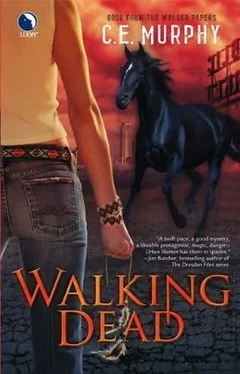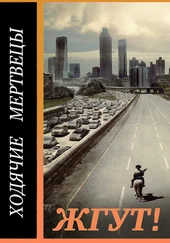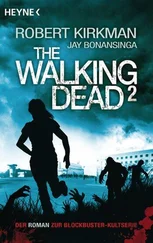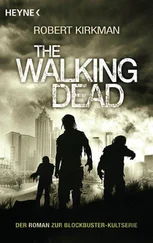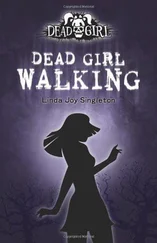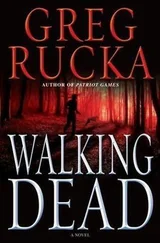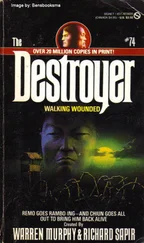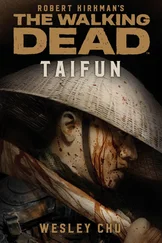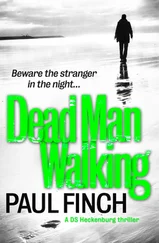“I’m all for preventing crime, Walker, but…”
“We might be able to nab two killers at once here,” I said over him. “Chan’s murder might lead us to the party cauldron ghosts’ killer. Look, I—” I bit off my words and turned to face Morrison, frustrated. “How much explaining do you want, boss? Do you want to know how I think the knee bone connects to the thigh bone?”
Morrison lifted his eyebrows. In somebody else I might’ve thought the expression was hiding a laugh, but Morrison and a sense of humor about weird crap were unlikely companions. “Will it make any sense if you do?”
“If you accept the basic premise that the cauldron that’s gone missing from the museum has the capability to disturb the dead, sure.” Okay, I wasn’t known for my sense of humor about the weird, either, but I was starting to smile by the time I got through with that. I sounded so rational, as long as I didn’t listen to what I was actually saying.
Morrison’s expression wiped my smile away. He just sat there, regarding me, until I figured what was left of my coffee was undrinkably cold. Then, in a voice that really did sound calm and rational, and not so much like how I’d sounded after all, he said, “What do you want from me here, Walker?”
“I want you to know I’m working on two cases,” I said very quietly. “I guess I want permission. I just want you to know what’s going on. I’m just trying to be…” A good cop, but that wasn’t something I could say aloud to my boss. Not now, not ever. It sounded too much like I was trying to live up to his expectations of me. Which I was, but that wasn’t the point. I folded my arms across my chest and found a corner to stare at, unable to meet Morrison’s eyes any longer.
“Don’t let the party investigation get in the way of solving Chan’s murder.”
“Sir.” I drew myself up with something close to military precision, relieved and surprised. “I won’t. Thank you.”
He nodded and jerked his head toward the door all at once, effectively dismissing both me and my thanks. I collected my files and my cold coffee, and got almost all the way out the door before my body staged a coup and turned back. My voice was in on the revolution, because it said, “Captain?” very quietly, and without any noticeable input from my brain on whether it should be talking.
Morrison was already absorbed in paperwork and looked up at me with a glimmer of faint impatience and expectation. “Walker?”
My rebellious voice said, “Thank you,” again, while my brain threw its hands up in exasperation. After all, it said, and for once I was very sure the snide little voice was a hundred percent me, and definitely something that’d been around before my powers woke up, after all, repeating thank-you is going to have some kind of profound effect on the almighty Morrison. What the hell. I didn’t even know why I was repeating myself. There was probably some kind of meaningful undertone to it, but my brain and I hadn’t been let in on the secret.
My boss, though, apparently had been. He looked at me a few seconds, then sighed, his shoulders dropping. “You’re welcome. Now get to work, Detective.”
I got.
The Seattle Daily Times archives for November 1, 1900, had a scrap of a story about Matilda Whitehead, a thirteen-year-old girl from a good family who’d gone missing the night before. A likeness had been drawn, and if I squinted just right I could see a resemblance between the ghostly green spirit and the solemn-faced child in the sketch. The paper labeled it a tragedy and warned young women of the dangers in the night.
Two days later a much more salacious story smeared itself across the front page of a Seattle broadsheet publication that had gone out of business in the 1930s. I printed the story off and took it, clenched in my fist, up to Jen in Missing Persons.
I hated the Missing Persons office. I hadn’t liked it before I went all sensitive, and now just walking in there depressed me. The walls, the desks—even the floor, in places—were covered with photographs of the missing, with lists of names, descriptions, last sightings; all the things that made up lives without endings. Homicide was bad, but even the unsolved cases there had a certain finality to them. In the MPD, unsolved meant a whisper of hope, and that much hope unanswered burned a bleak mark across the department.
A tall woman—tall by most people’s standards, not by mine; she was probably four inches shorter than me—with straight brown hair and a new pair of horn-rim glasses came around a file-cabinet-lined wall and said what she usually did when I came by: “Close the door, Joanne. You’re letting in a draft.”
“I don’t think it’s me. I think this whole office is just drafty by nature.” I closed the door anyway, and shook Jennifer Gonzalez’s hand. Jen always shook hands when she met someone, even if she’d seen them five minutes earlier. It was her way of sizing somebody up, and I’d come to suspect it had a psychic component to it. She’d been one of a very few who’d known how to offer me energy in a cohesive manner, back when I’d asked the police department to help me stop a god. We hadn’t really talked about it, mostly because she was as no-nonsense and straight-forward as I liked to think I was, and psychic impressions weren’t the sort of thing normal people discussed over coffee.
I stood there for a couple seconds trying to remember what normal people did discuss over coffee, then gave it up as a bad job. “I like the glasses. Didn’t know you wore them.”
“Thanks. I didn’t used to. They make me self-conscious, but I’ve been wearing them three weeks, and you’re only the second person who’s noticed.”
“At least nobody’s calling you four-eyes.” I tried to push my own glasses up, even though I wasn’t wearing them. I didn’t, usually. I’d had contacts since college, and I was always a little surprised by the leftover body language that kicked in when I thought about glasses. “Did Billy talk to you about the Whitehead case?”
“Yeah. Come on back.” She led me through a maze of cabinets and paper trails to her desk, where she handed over a single-page file. “There’s not much there. She went for a walk Halloween evening and disappeared off the street. Her mother swore she saw—”
“A cloaked figure snatch her up?” I gave Jen the broadsheet story in exchange. “I guess people in cloaks were probably more common in 1900 than they are now, but…”
But Edith Whitehead had described the cloaked figure as moving like an old person, too stiff and slow to possibly seize a child. She’d insisted there had been something wrong with the abductor, something inhuman and monstrous that gave it unnatural strength. The same words were on the missing-persons file, written dryly, but in the broadsheet story they carried the frantic pitch of her voice clearly enough that I could all but hear it through the century that separated us.
Both versions came to the same conclusion: Edith Whitehead was deranged, and if she’d seen her daughter’s disappearance at all, it was probably because she’d had a hand in it. The police report had a note tagged on years later, relegating the Whitehead kidnapping to cold cases. I wondered if there was a similar coda to the newspaper story, writing off a family’s loss as dramatics brought on by a feeble mind.
“It’s all I’ve got,” Jen said, bringing me out of my musings. “The other girl, Anne-Marie, if she died here in Seattle, it was either before there was a newspaper or law enforcement, or it didn’t get reported.”
“Both, probably.” I frowned at the files, trying to tease a thought out of my brain. It clung stubbornly, not wanting to see the light of day. I blew a raspberry to drive off the intention of pursuing it, opened my mouth to thank Jen, and instead said, “The interesting thing is they’re all white.”
Читать дальше
Конец ознакомительного отрывка
Купить книгу
